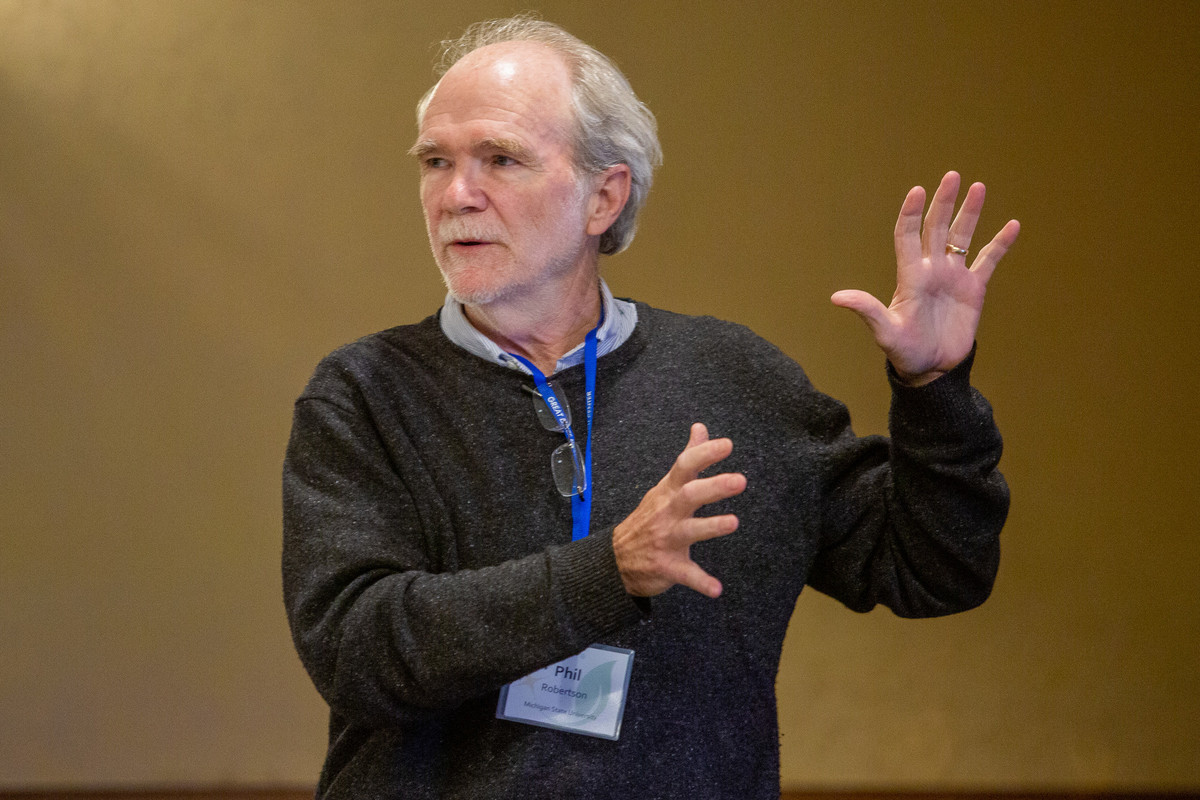
Great Lakes Bioenergy Research Center co-investigator Phil Robertson has been elected to the National Academy of Sciences, one of the highest honors for U.S. scientists.
Robertson, a distinguished professor at Michigan State University, is an internationally recognized crop and soil scientist and ecosystem ecologist whose research over more than four decades has focused on the biogeochemistry and productivity of field crop ecosystems and landscapes. His work has made significant contributions to understanding how farming practices influence climate stability, water quality, and crop yields.
Robertson is one of 120 members and 30 international members elected to the NAS in recognition of their distinguished and continuing achievements in original research, a group that also includes former GLBRC co-investigator Christoph Benning, a distinguished professor of biochemistry and molecular biology at MSU and director of the university's Plant Research Laboratory.
A resident faculty member at the W.K. Kellogg Biological Station, Robertson has led several of the nation’s most influential long-term agricultural research programs, including the NSF Long-Term Ecological Research Program from 1988 to 2017. He also played a foundational role in three of MSU’s major agroecology initiatives at KBS and served as GLBRC science director from 2017 to 2021.
Robertson’s research centers on the sustainability of cropping systems, including food crops such as corn, soybeans and wheat, and cellulosic biofuel crops like switchgrass, miscanthus and restored prairie. His lab investigates the ecological processes that regulate nitrogen availability and loss, soil carbon dynamics and greenhouse gas fluxes, particularly carbon dioxide, nitrous oxide and methane.
His work spans multiple scales, from soil microbial interactions to regional and global assessments of agriculture’s environmental impact. He is primarily known for advancing knowledge about the global warming impacts of agricultural management and the microbial processes that control nitrous oxide emissions from soils.